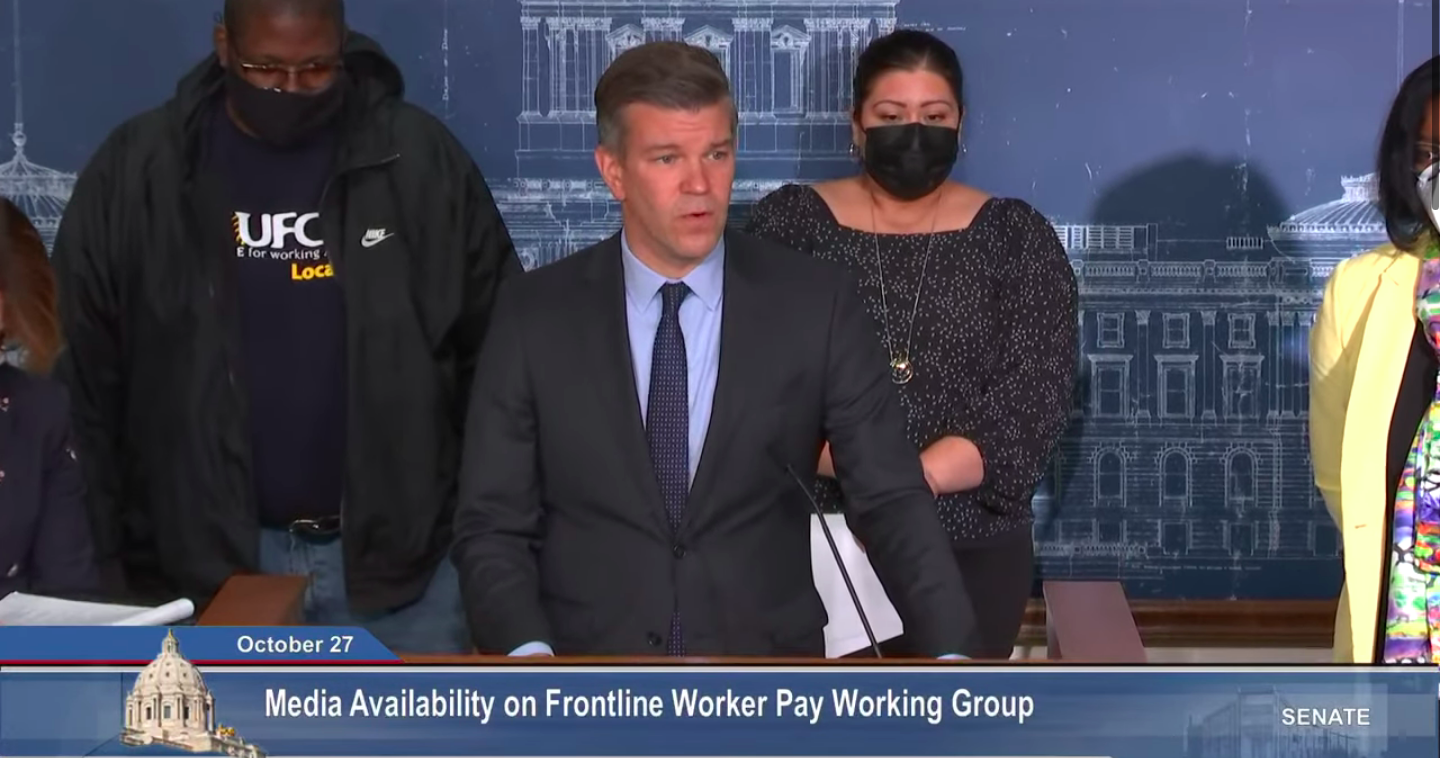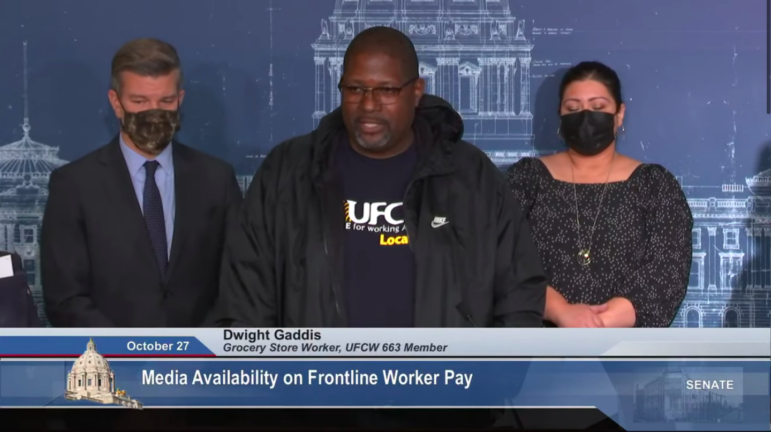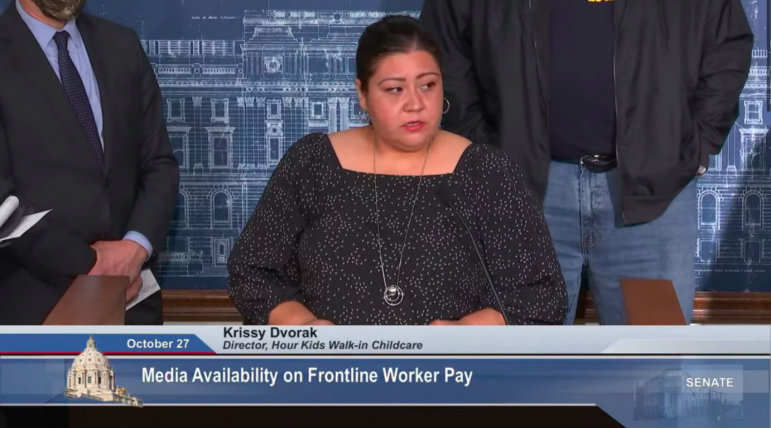

Share
“I consider myself a frontline essential worker that has been excluded from the Republican proposal for frontline essential worker pay,” said Dwight Gaddis, a retail grocery worker at Kowalski’s and member of UFCW Local 663. “It is now clear to me that they never had any intentions of including all essential frontline workers. Instead, they wasted our time choosing to play politics instead of taking care of us, the workers who keep putting their lives on the line on a daily basis.”
The Frontline Worker Pay Working Group, which began meeting in late July to figure out how to disburse $250 million to Minnesota’s frontline workers in pandemic bonus pay, participated in a final meeting today. After, workers and legislators responded in a press conference.
Failing to compromise on one plan, the group voted to send two separate proposals to the legislature. The one favored by Republican members focuses on long-term healthcare workers and first responders. The other one is favored by DFL members and includes a wider pool of eligible workers.
Senator Karin Housley said that since the beginning, the group was supposed to be focused on the frontline workers at most risk of exposure to COVID-19, not the entire group of over 600,000 essential workers in Minnesota. However, the working group listened to and received testimonies from essential workers in many sectors, including childcare and education, meatpacking, grocery retail, and more.
The Republican proposal would exclude many workers that made it possible for long-term healthcare workers and first responders to go to work. Krissy Dvorak is the director of Hour Kids Walk-in Childcare in Eagan and a leader in community childcare across the state. “I’ve been working on the frontlines of the pandemic,“ said Dvorak. “We’ve been caring for the children of other essential workers so that healthcare workers could make their shifts, grocery store workers could stock the shelves, couriers could deliver much needed supplies, and grade school educators could teach our children while we taught theirs.”
The statute setting aside the $250 million allows for up to three drafts to be presented. The DFL members offered a possible compromise, but discussion led to weeks of debate and delayed meetings before a final vote on moving forward with two proposals. “If the frontline workers performed like this legislature in the last six months, we would be in much worse shape in this state,” said Representative Ryan Winkler. “We have an obligation to try to reach a compromise.”
The Republicans disagreed. “This isn’t meant to be a stimulus check for all essential workers,” said Sen. Housley last week. “The longer we drag this out, they’re losing hope. We differ on policy. I don’t know if we can come together.”
Sen. Housley said that this money is supposed to be a “thank you” to frontline workers, recognizing them for their sacrifices. But many are calling for more money to be allocated so that more workers can be recognized. “After nearly two years on the frontlines of the pandemic, it is shameful that nurses and other essential workers will have to wait even longer to receive these payments,” said Mary C. Turner, RN, President of the Minnesota Nurses Association and a COVID ICU nurse in an AFL-CIO statement. “Minnesota nurses deserve a meaningful recognition of the sacrifices they have made over the last two years, as do all frontline workers. Legislators must make it right by approving additional funding for frontline worker pay as well as measures to address the unsafe and unsustainable working conditions that hospitals and other workplaces have created.”


The legislature will be back in session in January, and Republican members of the working group are urging for a special session to move the proposals forward. Governor Walz will not likely call a special session before then because of threats by the GOP to remove Minnesota Department of Health Commissioner Jan Malcolm.
Workers and DFL members believe the Republicans have been obstructing the democratic process by refusing to debate in good faith. “People will call frontline workers heroes, pay them lip service, but when it comes to doing the work of recognizing their labor with frontline worker pay, we’ve experienced nothing but obstruction in the last month…that is very difficult to understand and comprehend,” said Senator Erin Murphy. “We have been in a crisis for 19 months, the virus is not done with us yet.”


Hello, I was misquoted; I had said:
…so grade school educators could teach our children *while* we taught theirs.
My apologies Krissy! I misheard, fixing that now. Thank you!
Everyone that was considered an essential worker should be eligible for the bonus!!
There is no reason why they can’t get this done!!
Get the lead out and get this done!!